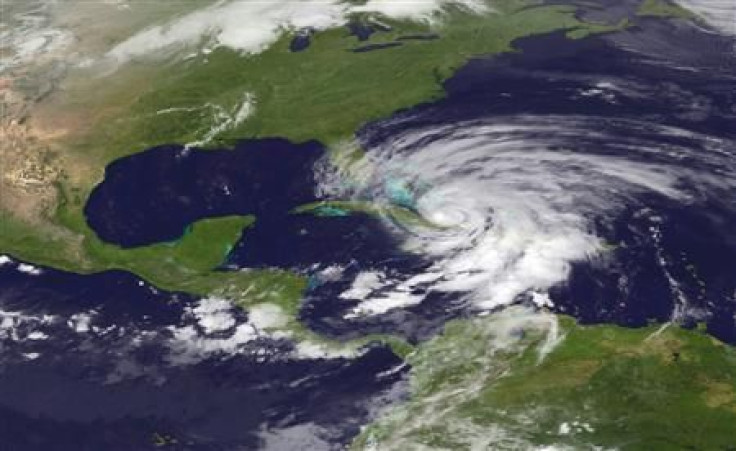Twitter Weather Updates More Valuable Than Facebook Announcements
Organic reach decline makes social network unreliable for sharing time-sensitive information, according to Weather Service.

Two weeks into hurricane season, the National Hurricane Center has a message for Facebook users looking for critical storm updates: You might be better off on Twitter.
The center, a part of the U.S. National Weather Service based in Miami, told International Business Times on Thursday that Facebook Inc. (NASDAQ:FB) has throttled the organic reach of its Facebook page so drastically in recent months that only a small percentage of its 260,000 fans now see its updates. The decline is part of a controversial trend over the last year in which Facebook has grown more aggressive in filtering newsfeeds so that users supposedly see only posts deemed relevant by its algorithm.
Given the limitations, the NHC said it can’t rely on the world’s most popular social network as a primary way of disseminating time-sensitive information. In an email, Dennis Feltgen, a meteorologist and the NHC’s public affairs officer, said people might have better luck on Twitter, which doesn’t filter its users’ tweets. “In some sense, Twitter is more valuable to us,” Feltgen said. “Because everyone who follows our Twitter accounts will receive a tweet whenever we issue a new tropical cyclone advisory, directing them to the NHC Web page for more information.”
According to Feltgen, statistics from the last month show that NHC updates are being seen by an average of 40,000 people, or only 16 percent of its Facebook fan base. For many page administrators the drop has been even more severe. Earlier this week, some local meteorologists -- including Denis Phillips of ABC Action News in Tampa, Florida -- told IBTimes that the decline of organic reach has affected their ability to share important weather updates with their communities. The growing chorus of complaints raises questions about Facebook’s usefulness as a place for real-time news consumption -- an issue sometimes lost in the organic-reach debate, which tends to center on frustrated marketers and businesses angry over being asked to pay money to reach their fans.
Phillips, who has 33,000 Facebook fans, said his station looked into boosting its posts with paid advertising, but the strategy was useless for time-sensitive information, since boosted posts can take hours to go live.
Feltgen said the National Hurricane Center has been “well aware” of Facebook’s throttling for some time, and that the trend has reinforced the idea that social media is not a substitute for time-tested, conventional ways of disseminating information. “NHC takes Facebook for what it is -- an additional channel to get information out to our user,” Feltgen said. “But understanding the limitations, we cannot rely on it to be one of our primary ways of disseminating critical, time-sensitive information.”
In the Atlantic region, hurricane season began June 1 and ends Nov. 30.
Got a news tip? Email me. Follow me on Twitter @christopherzara.
© Copyright IBTimes 2024. All rights reserved.












